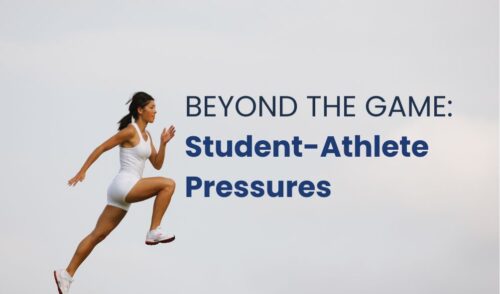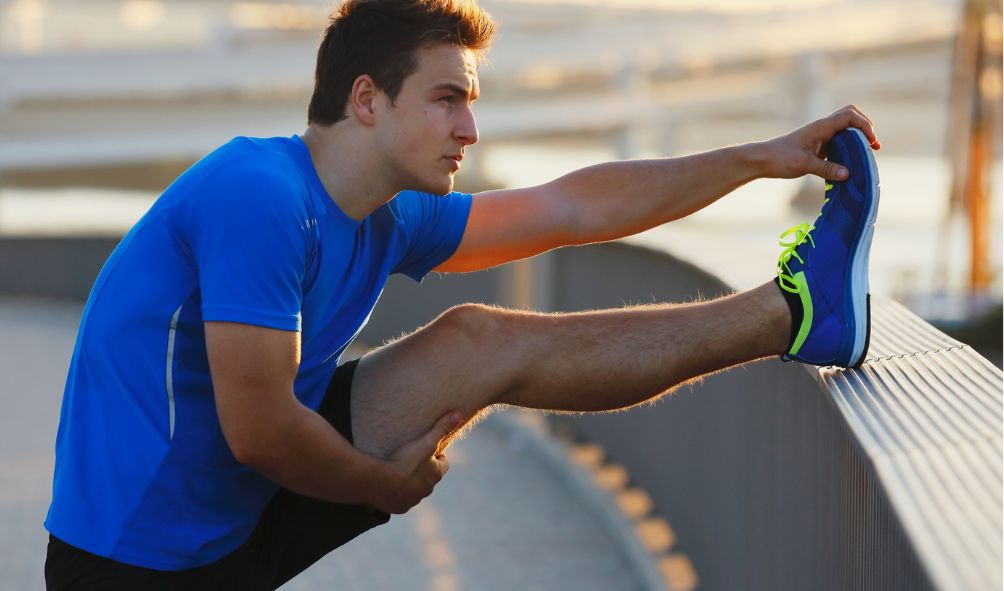From early morning practices to late-night study sessions, student-athletes push themselves harder than most and are often viewed as models of discipline, determination, and drive. Yet behind the highlight reels and trophies is another story—one that involves anxiety, exhaustion, and emotional strain—the mental health of student-athletes.
According to the National Collegiate Athletic Association (NCAA), concerns about the mental health of student-athletes remain a growing issue. The report found that over one-third of college athletes experience mental health challenges, such as anxiety, depression, and burnout. Specifically, 31% of male athletes and 48% of female athletes reported feeling overwhelming anxiety within the past year, while 21% of men and 28% of women struggled with symptoms of depression.
These findings highlight how the demands of college athletics—balancing academics, training, and competition—can take a serious toll on well-being. As stories of student-athlete suicides continue to surface across the country, experts emphasize the urgent need for stronger mental health care and preventive support within athletic programs.

The Unique Pressures Student-Athletes Face
Unlike non-athlete peers, student-athletes live within dual worlds—one academic, one athletic. The pressure to excel in both can cause a constant internal conflict.
Key Stressors Include:
-
Performance Pressure: Fear of letting the team down or losing scholarships.
-
Time Management: Balancing training, games, and academics can lead to chronic exhaustion.
-
Injury and Recovery: Being sidelined often triggers identity loss or depression.
-
Public Expectations: Social media adds a layer of scrutiny that didn’t exist a decade ago.
In the 2020 study “Stigma, Attitudes, and Intentions to Seek Mental Health Services in College Student-Athletes”, student-athletes often avoid seeking help because they fear stigma or appearing weak (Watson, 2020). This silence can make the issues on mental health of student-athletes worse especially in competitive environments.
Signs of Mental Health Struggles in Student-Athletes
Recognizing early signs can make a life-changing difference.
Common warning signs include:
-
Sudden withdrawal from teammates or coaches
-
Unexplained drop in performance
-
Fatigue, insomnia, or oversleeping
-
Irritability, mood swings, or hopelessness
-
Loss of interest in the sport
The Role of Coaches and Institutions
Coaches and athletic departments play a crucial role in creating a mentally healthy environment. The best programs are those that:
-
Normalize conversations about mental health of student-athletes.
-
Provide access to licensed sports psychologists.
-
Incorporate mindfulness, resilience, and stress management training into athletic programs.
The NCAA has issued guidelines encouraging athletic departments to establish mental health protocols and emergency response plans for student-athletes.

How Mental Edge Supports Mental Health of Student-Athletes
At Mental Edge, the mission is simple: help athletes strengthen their mindset just as much as their physical game.
Here’s how Mental Edge can help:
-
Performance Coaching: Personalized sessions help athletes overcome anxiety, improve focus, and regain confidence after setbacks.
-
Workshops for Teams: Practical tools to manage pressure, build resilience, and prevent burnout.
-
Holistic Support: Combining evidence-based psychology with athlete-centered performance strategies.
Mental Edge’s programs emphasize mental wellness as a foundation for athletic excellence, not an afterthought. Your mind is your most powerful muscle, and it needs training, too.
Moving Forward: Prioritizing the Whole Athlete
Improving the mental health of student-athletes requires a cultural shift—one that values emotional wellness as much as physical performance.
Every coach, institution, and parent can take part by fostering open communication, encouraging therapy, and removing the stigma around seeking help.
Mental health isn’t a sign of weakness. It’s the foundation of strength, resilience, and longevity in sports.
Ready to Strengthen Your Mental Game?
If you or your team are feeling the pressure, Mental Edge can help. Our evidence-based coaching and workshops empower student-athletes to build resilience, confidence, and balance—on and off the field.
Contact us today to start building your mental edge.



